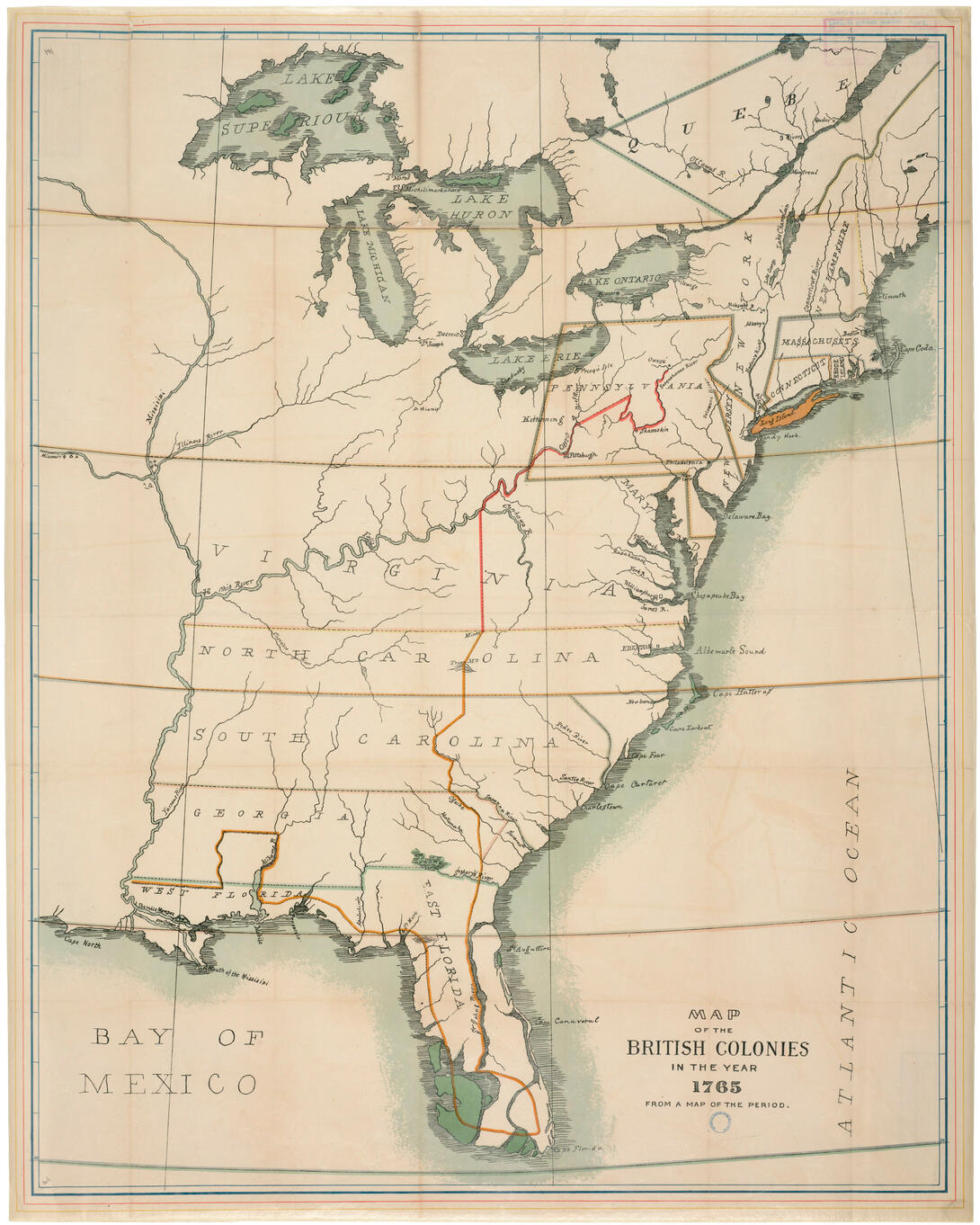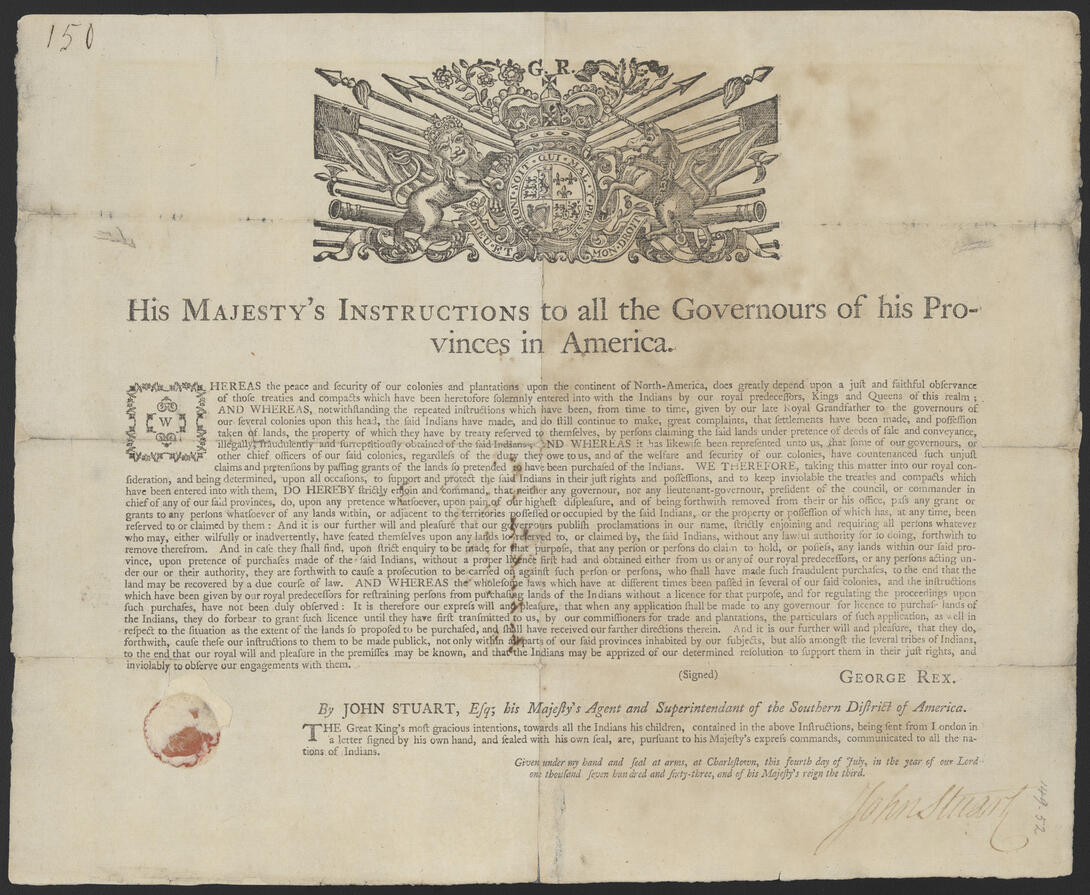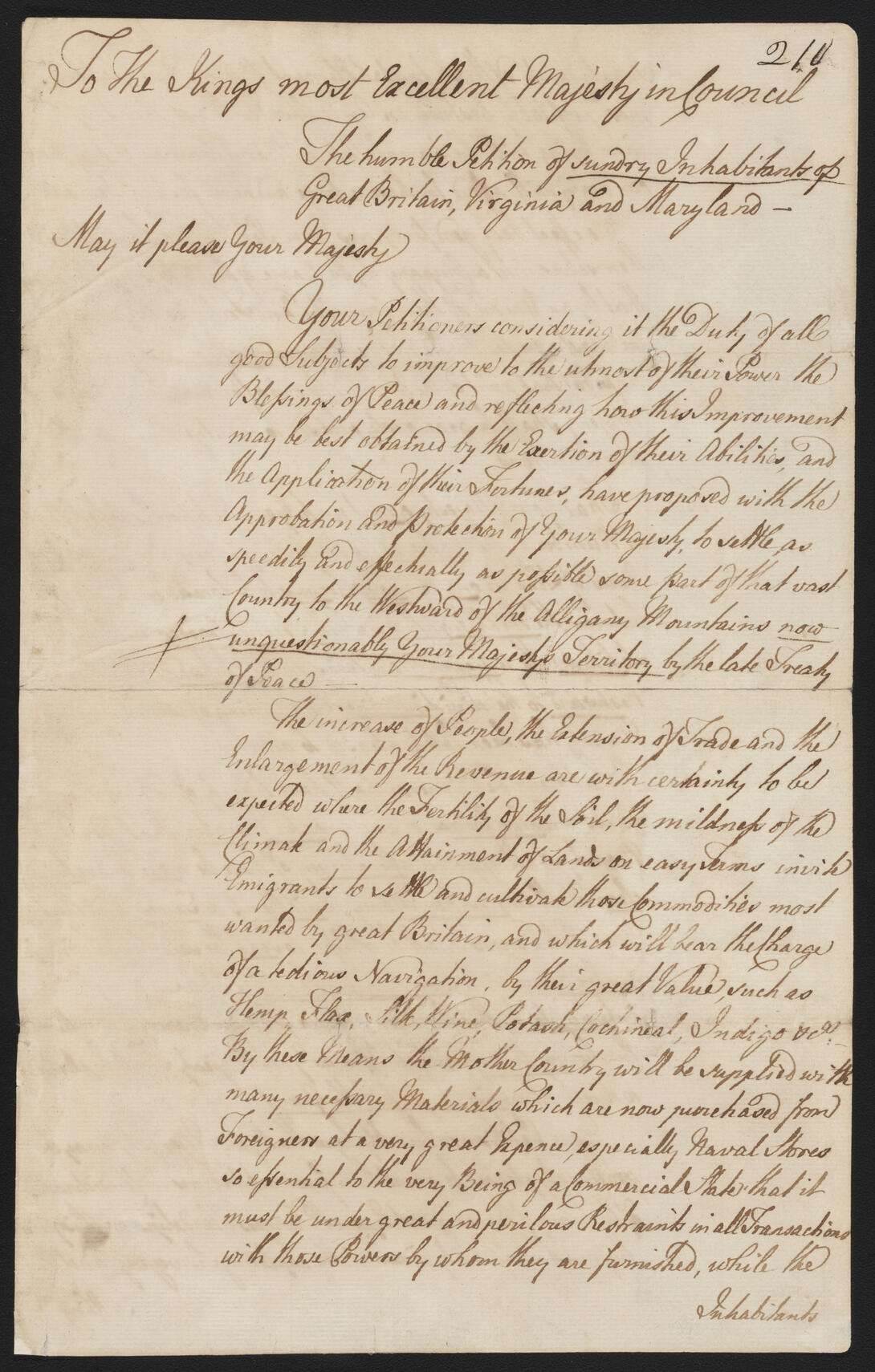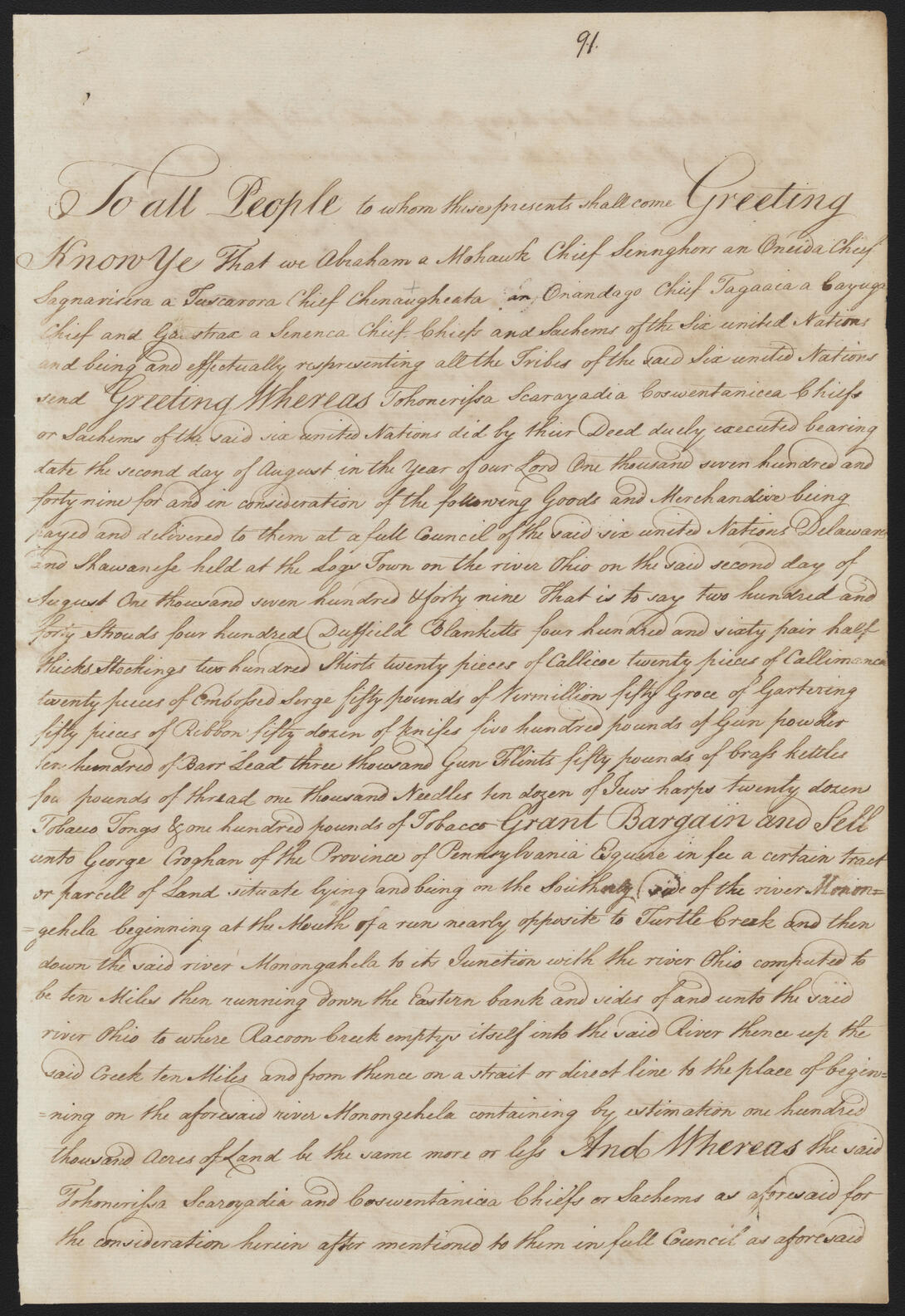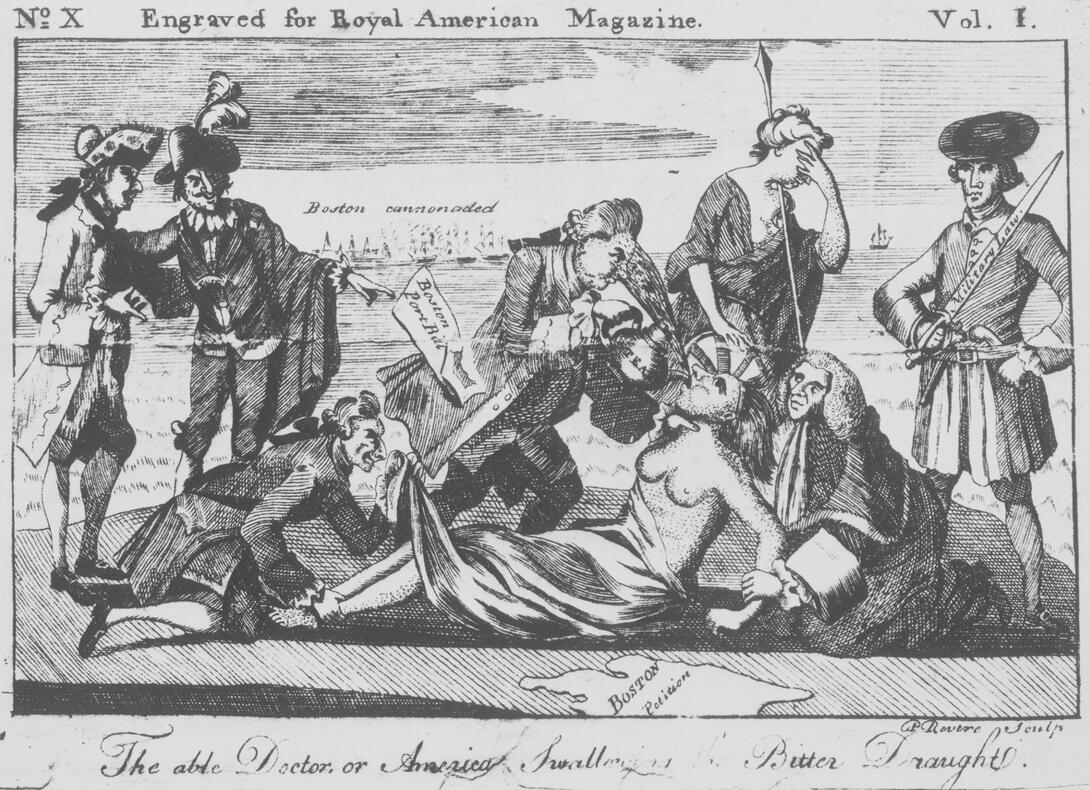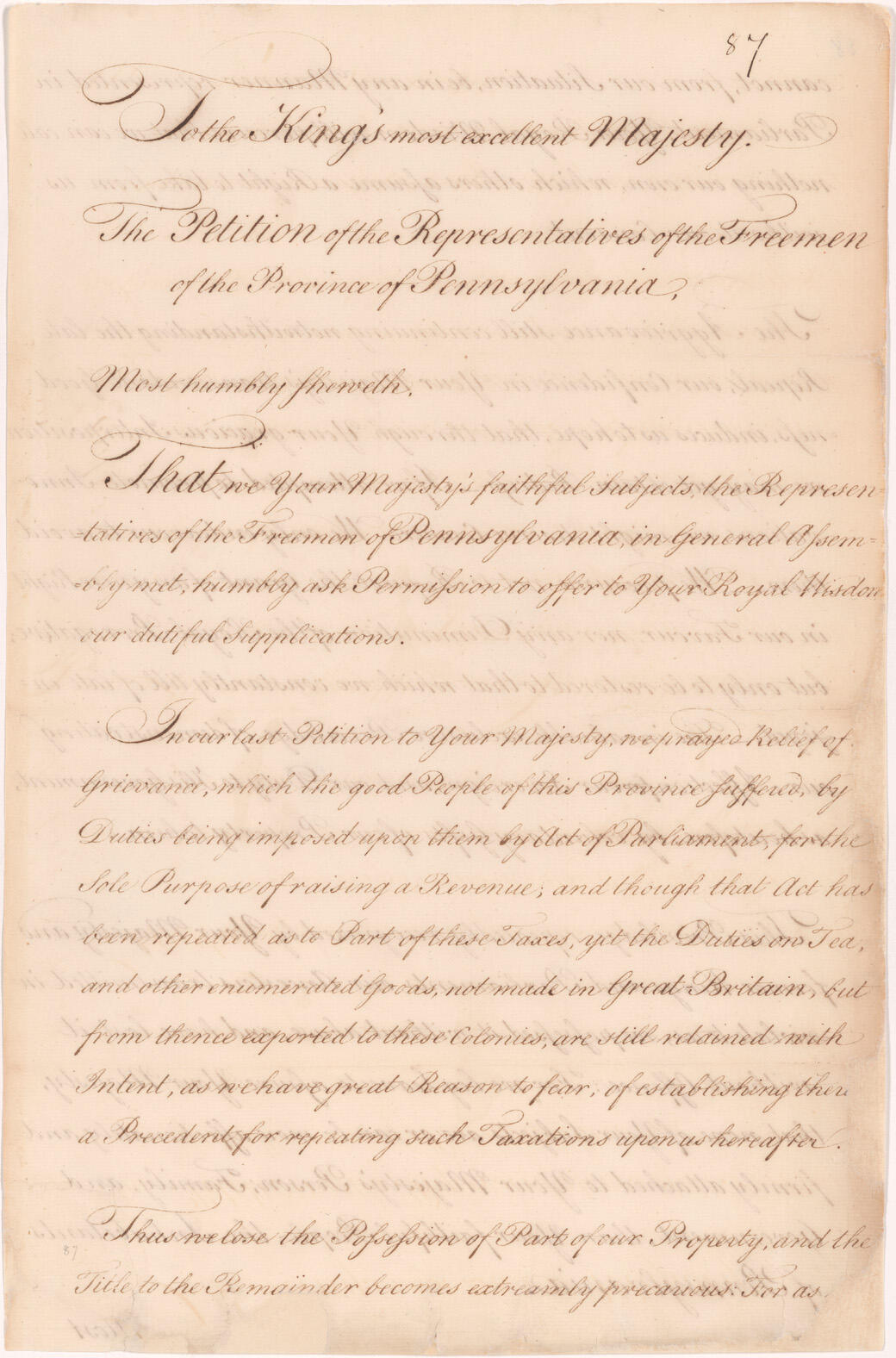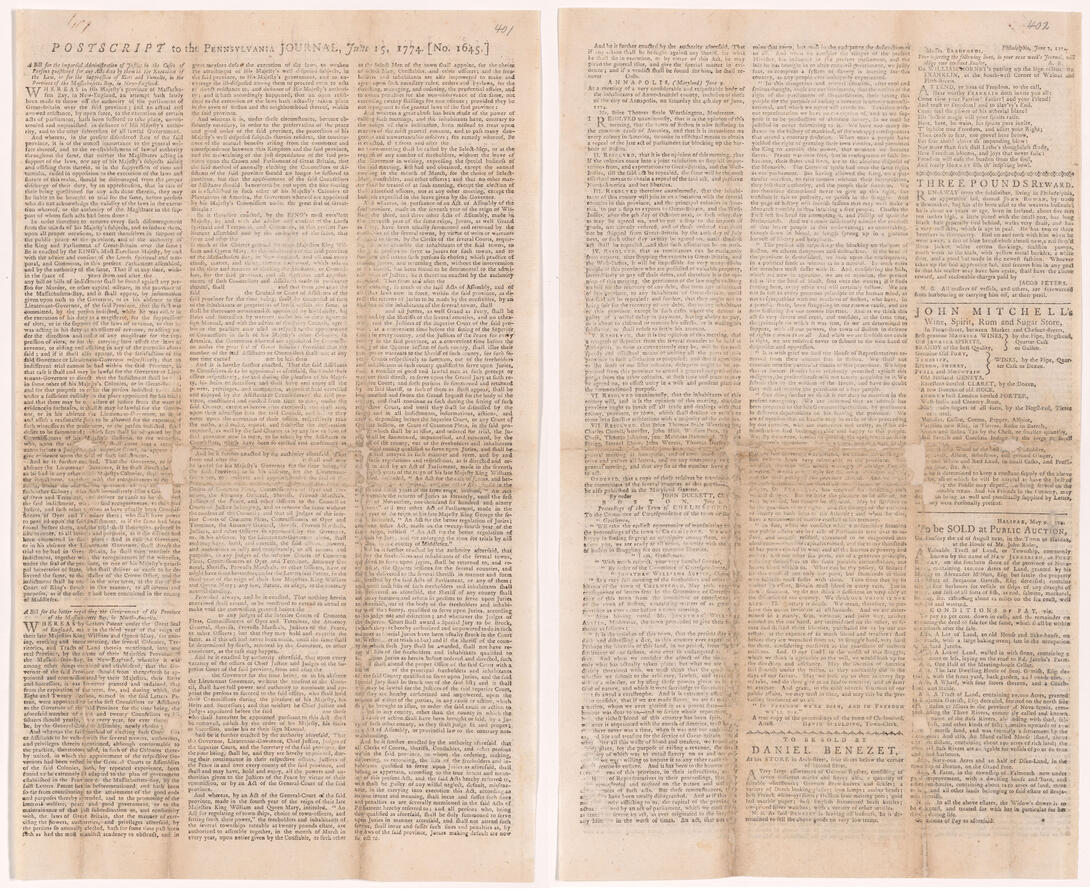Roots of Rebellion
The origins of the American Revolution can be traced to another conflict—the Seven Years' War. Colonial resistance emerged in response to new imperial policies related to western lands and eastern taxes (and trade) as Parliament grappled to administer its vastly expanded empire. This exploration of the roots of colonial rebellion also reveals that Native Americans' battle to maintain independence was already underway.

-
In addition to taxation, British policies limiting expansion into Native American land further alienated colonists.
Victory in the Seven Years' War did not bring an end to violence. Uprisings led by Native Americans and colonists erupted along the frontier. To maintain peace, King George III decreed a new land policy that sought to protect tribal lands from unauthorized colonial settlement. Many colonists viewed Britain's interference with their western ambitions as tyrannical, especially veterans of the Seven Years' War, who had been promised bounty lands for their service.
-
To quell unrest between the colonists and Native American tribes, King George issued a royal proclamation on October 7, 1763, that forbade colonists from settling west of the Appalachian mountains. Three months earlier, royal Indian Agent John Stuart sent this broadside to the Cherokee informing them of the King's intentions to protect "Indians in their just rights and possessions." The proclamation line, as it's known, was difficult to enforce and did little to halt colonists from settling on tribal lands.
Broadside of King George III’s “Instructions to all the Governours of his Provinces in America.” July 4, 1763.
Records of the Continental and Confederation Cong...Read moreBroadside of King George III’s “Instructions to all the Governours of his Provinces in America.” July 4, 1763.
Read less
Records of the Continental and Confederation Congresses and the Constitutional Convention -
Many settlers ignored the royal proclamation line. But land speculators like Richard Henry Lee and George Washington (who needed clear title to sell land) could not. In 1768, Washington, Lee, and other members of the Mississippi Land Company unsuccessfully petitioned the King for a land grant. The Crown's decision to restrict westward expansion heightened colonial hostility. Ultimately, Lee introduced the resolution for American independence, and Washington led the army that won it.
Petition from Proprietors of the Mississippi Company to the King of England, December 16, 1768
Records of the Continental and Confederation Congresses and the C...Read morePetition from Proprietors of the Mississippi Company to the King of England, December 16, 1768
Read less
Records of the Continental and Confederation Congresses and the Constitutional Convention -
Unable to stop colonial trespasses on Native American lands, royal officials negotiated with tribes to cede more land for colonial settlement. It backfired with the 1768 Fort Stanwix Treaty. To protect their own homeland, representatives of the Six Nations sold off a huge tract of land claimed by other tribes, including the Shawnee. Fearful of provoking war with a powerful coalition of tribes, the British government blocked implementation of the controversial treaty–which in turn angered colonists.
Six Nations deed delineating boundary line with the English, November 4, 1768
Records of the Continental and Confederation Congresses and the Constitutional Con...Read moreSix Nations deed delineating boundary line with the English, November 4, 1768
Read less
Records of the Continental and Confederation Congresses and the Constitutional Convention -
The British decision to levy taxes on its American colonies led to widespread resistance and ultimately revolution.
The cost of running the British Empire rapidly swelled after the Seven Years' War. Believing that the colonies should contribute to the expense of their own administration, the British Parliament implemented a series of unpopular trade regulations and taxes that provoked widespread protest. Colonists claimed that these taxes violated their constitutional rights. Great Britain insisted on its right to tax British subjects. Tensions mounted with each new measure as colonial resistance grew into open rebellion.
This political cartoon shows British officials pouring tea (the Coercive Acts) down the throat of a Native American woman representing “America.” Copy of an engra...Read more
This political cartoon shows British officials pouring tea (the Coercive Acts) down the throat of a Native American woman representing “America.” Copy of an engraving The able doctor, or America swallowing the bitter draught by Paul Revere, June 17, 1774.
Read less
Records of the Office of War Information -
Colonial boycotts of imported British goods taxed under the Townshend Acts forces the British Parliament to repeal nearly all of the duties in March 1770. However, it kept the tax on tea as a symbol of Britain's authority over the colonies. A year later the Pennsylvania Assembly petitioned the King to intervene on his subjects' behalf. Britain's refusal to relent led several dozen Bostonians to take extreme action when they dumped tea into the harbor at the "Boston Tea Party."
Petition of the Pennsylvania Provincial Assembly to the King of England, March 5, 1771
Records of the Continental and Confederation Congresses and the Con...Read morePetition of the Pennsylvania Provincial Assembly to the King of England, March 5, 1771
Read less
Records of the Continental and Confederation Congresses and the Constitutional Convention -
To punish Boston for the "Boston Tea Party," the British Parliament passed a series of measures in 1774 called the Coercive Acts-later renamed "Intolerable" by revolutionaries. This copy of the Pennsylvania Journal published two of the four acts and the reactions of Annapolis, Maryland, and Chelmsford, Massachusetts. Instead of isolating Boston and intimidating colonists as intended, the Coercive Acts further united Americans in a "Common Cause" that spurred the convening of the First Continental Congress.
Pennsylvania Journal publishing two of the Coercive Acts, June 15, 1774
Records of the Continental and Confederation Congresses and the Constitutional Conventio...Read morePennsylvania Journal publishing two of the Coercive Acts, June 15, 1774
Read less
Records of the Continental and Confederation Congresses and the Constitutional Convention -
Roots of Rebellion is part one of Road to Revolution, a series of displays highlighting National Archives records that document the journey from colonial resistance to American independence and the diverse experiences of the nation's founding generation.
Road to Revolution is made possible in part by the National Archives Foundation, through the generous support of Comcast Corporation, Microsoft, and Procter & Gamble.







